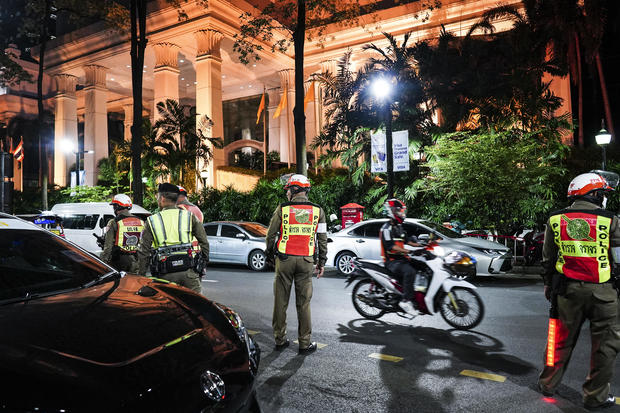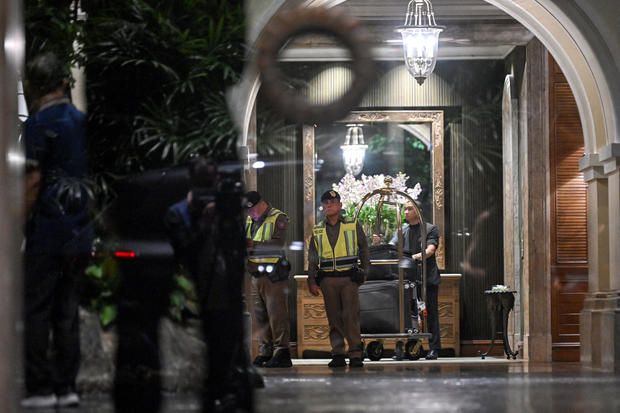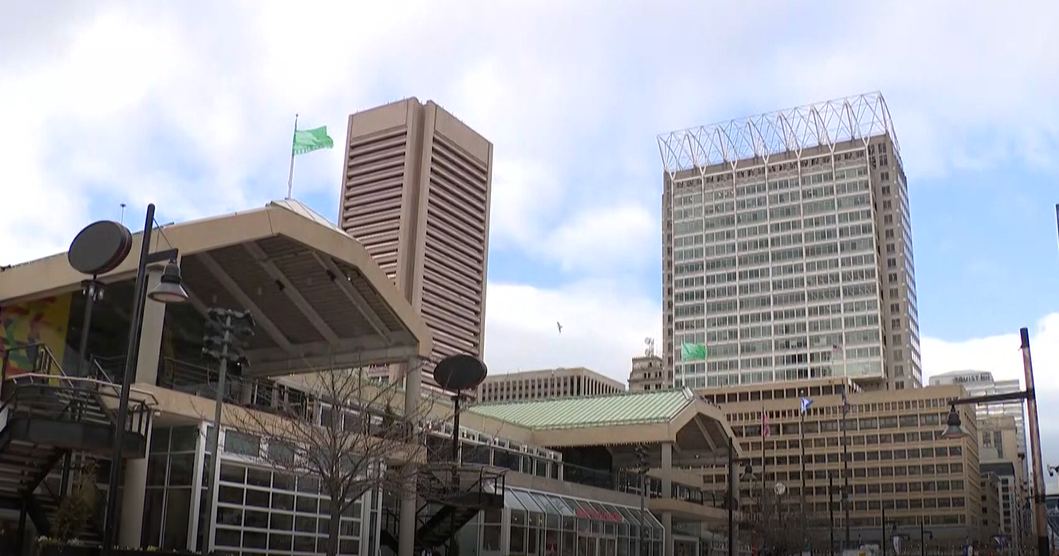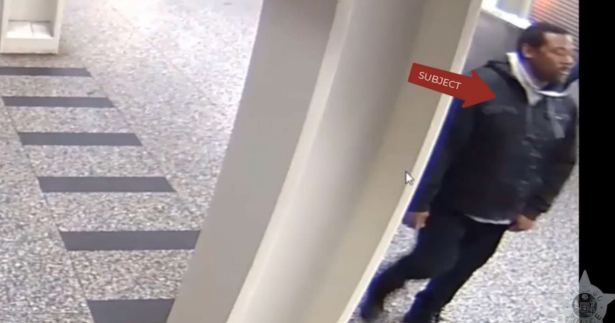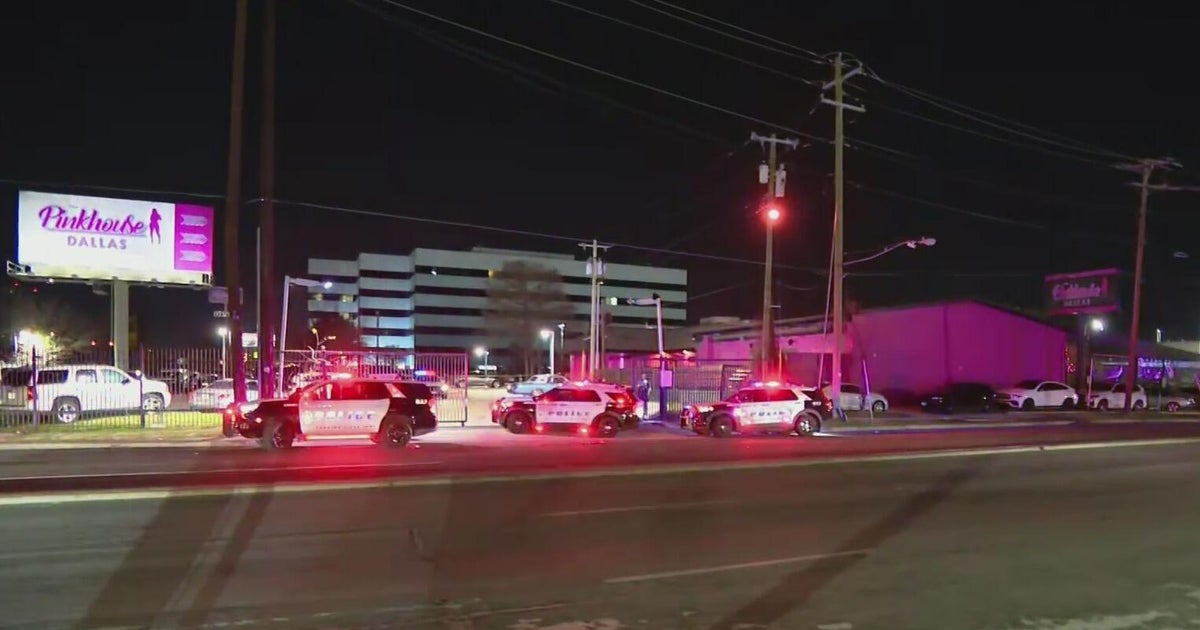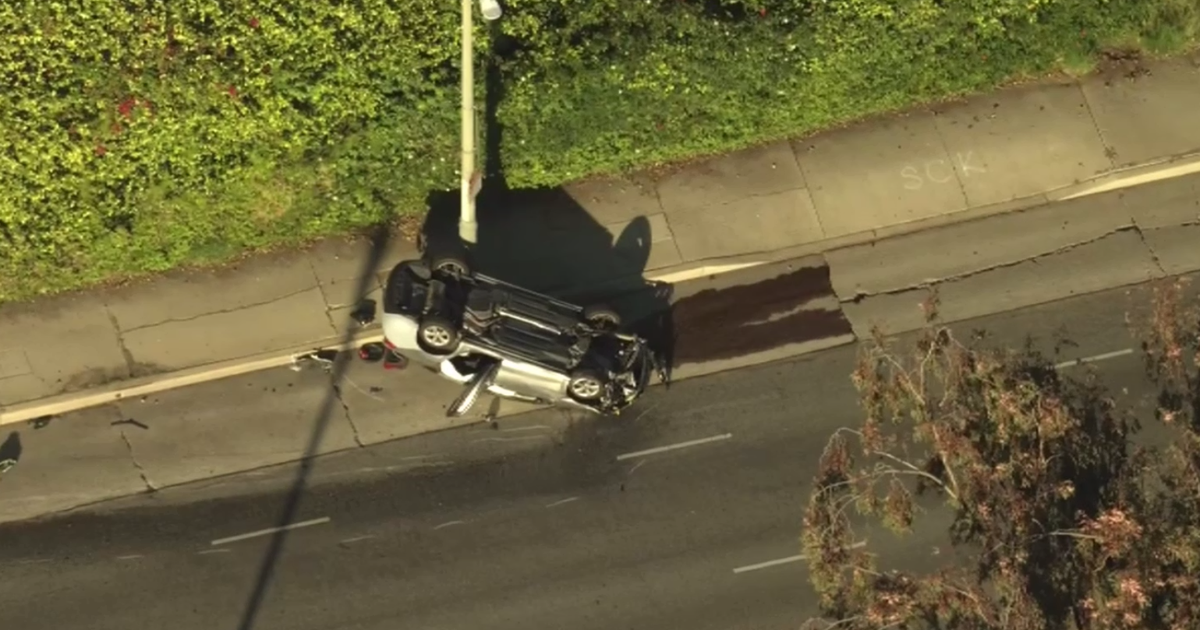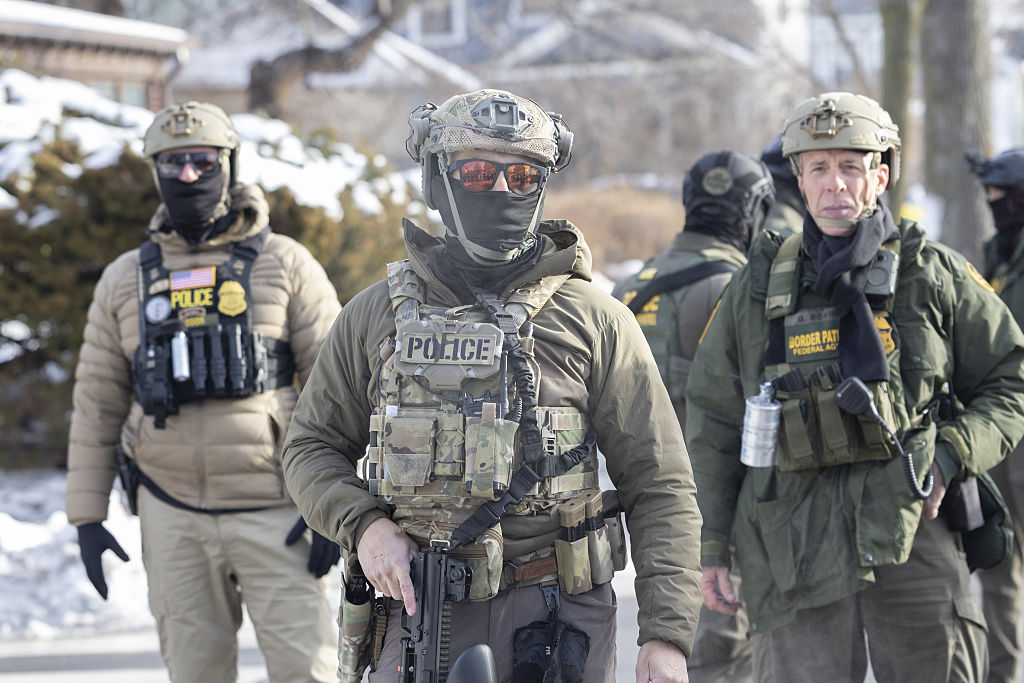6 people found dead in Bangkok Grand Hyatt hotel show signs of cyanide poisoning, hospital says
Bangkok — Police found traces of cyanide in the cups of six Vietnamese and American guests whose bodies were discovered at a central Bangkok luxury hotel and one of them is believed to have poisoned the others over a bad investment, Thai authorities said Wednesday.
The bodies were found Tuesday in the Grand Hyatt Erawan Bangkok, a landmark at a central intersection in the capital busy with malls, government buildings and public transit.
The six had last been seen alive when food was delivered to the room Monday afternoon. The staff saw one woman receive the food, and security footage showed the rest arriving one by one shortly after. There were no other visitors, no one was seen leaving and the door was locked. A maid found them Tuesday afternoon when they failed to check out of the room.
Lt. Gen. Trairong Piwpan, chief of the Thai police force's forensic division, said there were traces of cyanide in the cups and thermoses that police found in the room, and a Thai hospital said later Wednesday that autopsies on the six bodies had found traces of the poison.
All the bodies showed traces of the chemical toxin and they had purple lips, suggesting a lack of oxygen, the Reuters news agency cited Chulalongkorn Hospital's Kornkiat Vongpaisarnsin as telling reporters.
According to the U.S. Centers for Disease Control and Prevention, cyanide is "a rapidly acting, potentially deadly chemical that interferes with the body's ability to use oxygen." It can be contained as gas or a liquid.
Bangkok police chief Lt. Gen. Thiti Sangsawang identified the dead as two Vietnamese Americans and four Vietnamese nationals and said they were three men and three women. Their ages ranged from 37 to 56, according to Noppasin Punsawat, Bangkok deputy police chief. He said the case appeared to be personal and would not impact the safety of tourists.
A husband and wife among the dead had invested money with two of the others, suggesting that money could be a motive, said Noppasin, citing information obtained from relatives of the victims. The investment was meant to build a hospital in Japan and the group might have been meeting to settle the matter.
Bangkok police chief Lt. Gen. Thiti Sangsawang said Tuesday that four bodies were in the living room and two in the bedroom. He said two of them appeared to try to reach for the door but collapsed before they could.
Noppasin said Wednesday that a seventh person whose name was part of the hotel booking was a sibling of one of the six and left Thailand on July 10. Police believe the seventh person had no involvement in the deaths.
The Vietnamese and United States embassies have been contacted over the deaths, and the American FBI was en route, Prime Minister Srettha Thavisin said.
He said the case would likely not affect a conference with Russian Energy Minister Sergei Tsivilev at the hotel later Wednesday. "This wasn't an act of terrorism or a breach in security. Everything is fine," he said.
Trairong said a mass suicide was unlikely because some of the victims had arranged future parts of their trip, such as guides and drivers. He added that the bodies being in different parts of the hotel room suggested they did not knowingly consume poison and wait for their deaths together.
U.S. State Dept. spokesman Matthew Miller in Washington offered condolences to the families of the victims. He said the U.S. is closely monitoring the situation and would communicate with local authorities.
U.S. Secretary of State Antony Blinken spoke with his Thai counterpart on Tuesday, but Miller said he thought that call happened before the deaths were reported and he didn't know if it came up in their conversation.
In 2023, Thailand was rocked by reports of a serial killer who poisoned 15 people with cyanide over a span of years. Sararat Rangsiwuthaporn, or "Am Cyanide" as she would later be called, killed at least 14 people who she owed money to and became the country's first female serial killer. One person survived.
